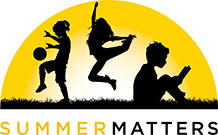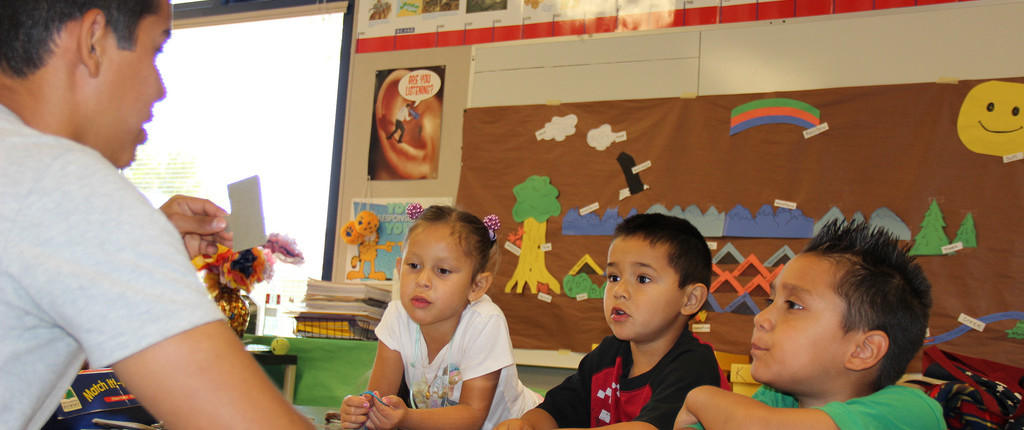Summer program helps narrow the gap for Sacramento kids
by Laura Sussman, Sacramento Bee
As students begin returning to school next week, hundreds of children from Del Paso Heights and south Sacramento will have a leg up after honing their academic skills this summer at Freedom School programs held around the city.
The six-week literacy program, held at six Sacramento schools, helped mainly low-income children in pre-K to 12th grade avoid losing academic ground during the summer.
Teacher Jasmine Perring said she watched students develop a “joy for reading” as the weeks progressed. Eventually, the students were competing to see who could read the most, she said.
Teacher Michelle Crisp saw a female student with an “information processing disorder”progress from struggling to write a full sentence in June to writing an entire paragraph by the time the program ended this month.
The center began its partnership with the CDF Freedom Schools program four years ago, serving 160 students at three locations. It now oversees 600 students with the help of several student leader interns and two teachers from local school districts.
A majority of the schools’ children qualify for free or reduced-price meals, a common federal marker of poverty. Some also have non-native English speaking students, which also can hamper academic progress.
Sacramento’s six sites are among 27 statewide and dozens more nationally, all run and funded by the Children’s Defense Fund along with local school districts . Since 1995, the program has served more than 137,000 students across the country.
Studies show the detrimental effects of summer learning loss. According to the National Summer Learning Association, some children experience one to three months of reading loss during the summer, a phenomenon that affects mainly low-income students without access to academic materials when not in school.
Students whose families can afford to send their children to summer camps that enhance learning are more likely to make slight gains. By the end of elementary school, studies done by the American Sociological Review found that this contributes to low-income pupils being up to three grade equivalents behind their higher-income peers.
The Freedom School allows children to bridge the summer reading loss gap and to make academic gains. Students can return yearly.
Studies conducted by CDF and by Philliber Research Associates found that 85 percent of participants displayed being at or above grade-level after attending the program. A 2016 CDF national evaluation found that 82 percent of students experienced no summer reading loss, and 51 percent noted improvement.
Focus on Family Foundation founder Jackie Rose said one of the program’s longtime students has had problems in the traditional school setting. But, when participating in the program, he “gives it his all every time,” Rose said, and has become a student leader.
Each morning, all students participate in a morning “celebration” called Harambee – which means “all pull together” in Swahili. Then they head to class, for reading, book discussions and writing practice. The CDF’s Freedom Schools program follows a core curriculum focusing on reading but also includes science, technology, engineering and math, along with the arts, according to Roni Bean, site coordinator for Rose’s program.
Each year, the program identifies a social action issue for the children to learn about and address. This year, child hunger was chosen, a selection prompted by proposed budget cuts to federal nutrition and lunch programs such as SNAP, WIC and the summer lunch program.
The cause is especially important because “some of our kids experienced (hunger),” said Bean.
The students wrote letters to government officials, asking them to keep the programs, made signs and participated in a mock protest march.
The RFDC began its partnership with the CDF Freedom Schools program four years ago. Initially, it had three locations serving 160 students. The Center now oversees 600 students with the help of student leader interns and teachers from local school districts.
Crisp, who works full time at Main Avenue Elementary School, was “sold” on the program after seeing Harambee during her teacher training in Tennessee.
Now in her third year with the program, she is especially fond of the multicultural reading materials, which often relate to the students’ lives. The “scholars” get to take home these materials at the end of the program, providing the children with a built-in library at home.
An important part of the programs is parent involvement. Once a week, parents attend meetings and are invited to events and on field trips with the children.
“Kids can’t be nothing else but successful” with the proper parental participation, Rose said.
This article originally appeared in the Sacramento Bee.



